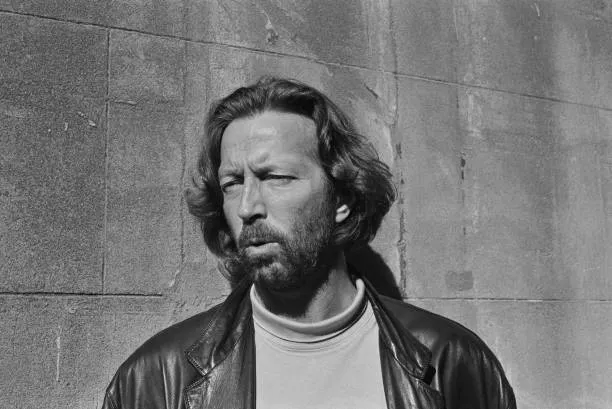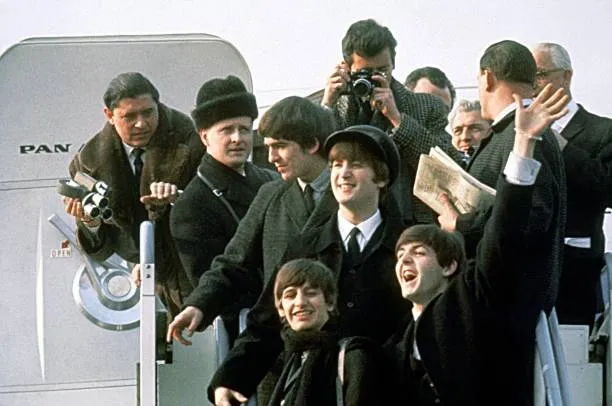Whitney Houston, often hailed as "The Voice," is renowned for her unparalleled vocal prowess and a catalog that spans pop, R&B, and soul.
However, her gospel roots played a foundational role in shaping her musical journey and vocal style.
This article delves into Whitney Houston's relationship with gospel music, exploring its influence on her career, key gospel performances, and the enduring legacy of her spiritual songs.
A Family Steeped in Gospel Tradition
Whitney Houston was born on August 9, 1963, in Newark, New Jersey, into a family deeply rooted in gospel music.
Her mother, Cissy Houston, was a notable gospel singer and a member of The Drinkard Singers and The Sweet Inspirations, a group that provided backup vocals for major artists like Elvis Presley and Aretha Franklin.
Whitney's cousin, Dionne Warwick, and her godmother, Aretha Franklin, were also influential figures in gospel and soul music.
Surrounded by such immense talent, Whitney's introduction to gospel music came naturally. As a young child, she attended New Hope Baptist Church in Newark, where her mother was the music director.
It was there, among the pews and the sacred hymns, that Whitney's love for gospel music blossomed.
Church Choir to Stardom

Whitney Houston began singing in the church choir at a young age, honing her vocal skills and developing an emotional connection to gospel music.
The discipline and soulfulness required in gospel singing helped shape her vocal style, characterized by powerful, emotive performances that would later define her career.
Singing in church not only nurtured her technical abilities but also instilled a sense of spirituality and emotional depth that permeated her music.
The gospel music she grew up with was often imbued with themes of faith, hope, and perseverance—elements that would become central to her artistry.
Gospel Influences in Popular Music
As Whitney Houston transitioned into the mainstream music industry, the gospel influences in her voice and performance style remained unmistakable.
Her debut album, "Whitney Houston," released in 1985, featured pop and R&B songs but carried the emotional intensity and vocal agility she had developed through gospel music.
Tracks like "Greatest Love of All" and "How Will I Know" showcased her ability to convey deep emotion and connect with listeners on a profound level.
Whitney's sophomore album, "Whitney," released in 1987, further solidified her status as a pop icon. Yet, even in her biggest hits, the gospel undertones were always present.
Her powerful vocal delivery, dynamic range, and emotional expression were a testament to her gospel roots, setting her apart from peers and earning her the moniker "The Voice."
Iconic Gospel Performances

Throughout her career, Whitney Houston delivered several unforgettable gospel performances that highlighted her spiritual roots and showcased her incredible vocal talent.
One of the most memorable was her rendition of "Amazing Grace" during various special events and concerts. Whitney's interpretation of this classic hymn was a soul-stirring experience, characterized by her heartfelt delivery and vocal control.
Another iconic gospel moment came during her performance of "Guide Me, O Thou Great Jehovah" at the 1994 American Music Awards.
Accompanied by a full gospel choir, Whitney's performance was a powerful testament to her faith and her ability to move audiences through the power of gospel music.
One cannot overlook her stunning performance of "I Love the Lord" in the movie "The Preacher's Wife."
The song, featured on the film's soundtrack, showcased Whitney's deep connection to gospel music and her ability to convey spiritual themes with passion and authenticity.
The soundtrack album, which remains the best-selling gospel album of all time, further cemented her place in gospel music history.
"The Preacher's Wife": A Gospel Milestone
"The Preacher's Wife" soundtrack, released in 1996, was a significant milestone for Whitney Houston's gospel career. The album featured a mix of traditional gospel songs and original compositions, beautifully showcasing Whitney's versatility and deep-rooted spirituality.
Produced by Mervyn Warren and Whitney herself, the soundtrack demonstrated her commitment to gospel music and her desire to honor her musical heritage.
Songs like "I Believe in You and Me," "Step by Step," and "My Heart Is Calling" resonated with both gospel and mainstream audiences, bridging the gap between sacred and secular music.
Whitney's performance of "I Go to the Rock" was particularly notable, highlighting her commanding vocal presence and her ability to imbue gospel songs with soul and conviction.
"The Preacher's Wife" soundtrack was a commercial success, reaching number three on the Billboard 200 chart and earning critical acclaim.
It provided a platform for Whitney to showcase her gospel roots to a wider audience and solidified her influence in both gospel and popular music.
The Enduring Legacy of Whitney Houston's Gospel Music

Whitney Houston's gospel music legacy is a testament to her incredible talent, deep spirituality, and commitment to her roots.
Her emotive performances and powerful voice continue to inspire artists across genres, and her gospel recordings remain a cherished part of her discography.
In 2011, Whitney released the critically acclaimed album "I Look to You," which featured gospel-infused tracks that reflected her enduring faith and resilience.
Songs like "I Look to You" and "I Didn't Know My Own Strength" showcased her ability to draw on her gospel background to convey themes of hope, redemption, and inner strength.
Whitney Houston's impact on gospel music extends beyond her recordings. Her performances in church and collaborations with renowned gospel artists have left an indelible mark on the genre.
She has been honored with numerous awards for her contributions to gospel music, including NAACP Image Awards and Stellar Awards.
Whitney’s Faith and Music
Whitney Houston often spoke about the significance of her faith and the role of gospel music in her life.
In interviews, she frequently expressed gratitude for her upbringing in the church and credited gospel music with shaping her vocal technique and emotional expression.
Whitney's deep connection to her faith was evident in her music, reflecting her belief in the power of spirituality to uplift and inspire.
Despite the challenges and tribulations she faced throughout her career, Whitney's music remained a source of comfort and encouragement.
Her gospel songs, in particular, provided a sense of solace and strength, reminding listeners of the transformative power of faith.
Reflection on a Timeless Legacy
As we reflect on Whitney Houston’s gospel music legacy, we are reminded of the enduring impact she has had on the music industry and the hearts of her fans.
Her gospel performances and recordings are a testament to her extraordinary talent and her unwavering faith.
Whitney's ability to seamlessly blend gospel with pop, R&B, and soul music set her apart as an artist, allowing her to touch the lives of people from diverse backgrounds.
Whitney Houston's gospel roots continue to resonate with listeners, inspiring a new generation of artists and fans.
Her music serves as a reminder of the power of gospel music to convey deep emotion, foster connection, and uplift the spirit.
From her early days singing in church to her iconic performances on the world stage, Whitney Houston's gospel legacy is an integral part of her remarkable story.
Whitney Houston's gospel music legacy is a cornerstone of her illustrious career, highlighting her incredible vocal talent and deep spiritual roots.
Her emotive performances and powerful voice have left an indelible mark on both the gospel and popular music landscapes.
From her early days in the church choir to her iconic gospel recordings, Whitney's music continues to inspire, uplift, and resonate with listeners around the world.
Her gospel performances remain timeless treasures, offering solace, hope, and inspiration to generations of fans.
Whitney Houston's legacy as "The Voice" lives on, and her gospel music serves as a testament to her profound talent, faith, and enduring influence.



